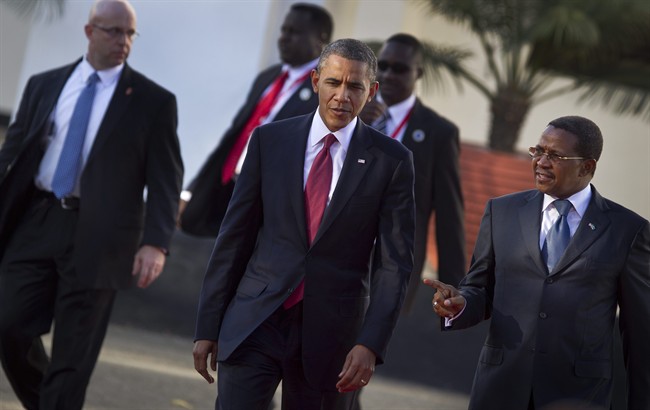WASHINGTON – The Obama administration maintained its hands-off approach to the nationwide turbulence in Egypt on Wednesday, even as the military overthrew the Islamist government.

State Department spokeswoman Jen Psaki Wednesday, speaking just before the new government was announced, said the Obama administration is concerned about Egypt, but called for talks to plot a solution in one of the United States’ most important Arab allies.
There was no immediate response from the State Department or the White House after the Egyptian military’s order.
“We think that all sides need to engage with each other and need to listen to the voices of the Egyptian people, and what they are calling for, and peacefully protesting about,” Psaki said. “And that’s a message we’ve conveyed at all levels to all sides.”
Psaki steered clear of directly criticizing ousted Egyptian President Mohammed Morsi, whose whereabouts were not immediately known after the military’s announcement Wednesday. But she noted Morsi could have answered the Egyptian public’s concerns, “and he did not take the opportunity to do that.”
It was a deliberately muted response to the uproar that has for days gripped Egyptians, many of whom in turn have openly jeered the U.S. for appearing too close to Morsi, despite his hard-line Islamist policies. The White House has gamely struggled since Morsi’s election more than a year ago to embrace his presidency, despite fears that his Muslim Brotherhood power base would revert to its anti-American and anti-Israel roots instead of taking a more moderate stance towards peace.
It should come as little surprise that President Barack Obama, who is grappling with a recovering economy, a war-weary public at home and diminished U.S. status as a global superpower abroad, would not wade into foreign conflicts.
- Alberta to overhaul municipal rules to include sweeping new powers, municipal political parties
- Norad looking to NATO to help detect threats over the Arctic, chief says
- Grocery code: How Ottawa has tried to get Loblaw, Walmart on board
- Canada, U.S., U.K. lay additional sanctions on Iran over attack on Israel
Obama has long made it clear that he favours a foreign policy of consultation and negotiation, but not intervention, in the persistent and mostly violent upheavals across the Mideast.
Obama campaigned by promising to end the war in Iraq, which he did in 2011; he now plans to withdraw most, if not all, U.S. troops from Afghanistan by the end of next year and inevitably will face pitched pleas from Kabul to reconsider as the deadline nears.
U.S. polls indicate that two-thirds of Americans have opposed the wars in Iraq and Afghanistan.
In Egypt, American officials had given Morsi strong suggestions – tied to billions of dollars in aid – to ease tensions but went unheeded. Officials in Washington and Cairo said Wednesday there are no plans for U.S. military intervention in Egypt, although a unit of about 500 Marines remain on standby in the nearby Red Sea, where it has been stationed for some time.
The White House also has long resisted deploying troops to Syria. Additionally, and despite criticism from some in Congress and allies abroad, Obama refused until last month to give weapons to Syrian rebels who have been battling for more than two years to overthrow Syrian President Bashar Assad.
Tamara Cofman Wittes, who served as deputy assistant secretary of state from late 2009 until early this year, said the administration’s strategy in the Mideast may be a not-so-subtle reminder that the U.S. is no longer willing – or able – to play either world policeman or peacekeeper.
But, in the case of Egypt, Wittes said the White House may no longer have enough sway to advise a political transition, even if it wanted to do so.
The U.S. should be urging the new Egyptian government to stabilize its roiled economy quickly and prevent the country from plunging even deeper into political instability, Wittes said, adding, “There’s a role for the United States to be weighing in.”
However, “for better or worse, we’re in a position now where the United States has to some extent alienated the political opposition, and by not standing with Morsi, I suppose they’ve also alienated the Muslim Brotherhood,” Wittes said Wednesday. “So I don’t think the U.S. finds itself with a lot of ready audiences.”
Associated Press writers Lara Jakes and Lolita C. Baldor in Washington contributed to this report.



Comments